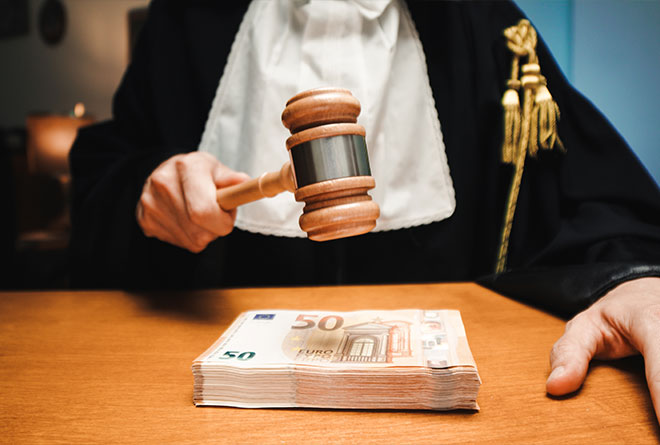
#92Right to compensation for non-pecuniary damage
In particular, a natural person shall have the right to have unjustified interferences with his or her right to the protection of his or her personality refrained from, to have the consequences of those interferences remedied and to obtain appropriate compensation. Under the current and effective legislation contained in Article 13 (2) of the Civil Code, if such compensation would not be sufficient, in particular, because the dignity of the natural person or his or her esteem in society has been substantially impaired, the natural person also has the right to compensation for non-pecuniary damage in the form of money.
However, the actual amount that the plaintiff determines in the petition is ultimately at the discretion of the court itself. That is to say, the court must, when giving judgment, deal with the reasons for its decision, but it cannot award the applicant an amount higher than that sought by the applicant in his application, even on the assumption that the amount sought would be unreasonably low from a subjective point of view.
Conversely, the court may reduce that amount in light of the circumstances of the case, the evidence, or case law and other facts. It is even within the power of the court itself to dismiss the claimant's application in its entirety, but it should be borne in mind that, in the case of decisions of the lower courts, there is the possibility of an appeal, such as an appeal against the judgment, which may not by that time have become final.
A prerequisite for the award of such compensation is therefore an essential circumstance, namely the existence of an injury. In the Court of Appeal's view, serious damage is to be regarded as damage which, having regard to the circumstances in which the infringement of the right occurred, the intensity of the interference, its duration or impact and its consequences, is regarded by the natural person as significant damage. However, it is not the subjective feelings of the person concerned that are decisive, but the objective aspect, i.e. whether the harm in question would have been perceived in the same way by any other natural person at the place and time in question (in the same situation, or social position, etc.).
In the first instance, the district court in the place of residence of the defendant, or the district court in the city where the defendant has a place of work according to the employment contract, is competent to assess whether a fact has occurred which gives rise to a right to compensation for damages, which means that we can determine where the action must be served.
In conclusion, it should be noted that in order to succeed in the proceedings, it is necessary, in particular, to prove the interference which is capable of causing the damage, as well as the occurrence of such non-pecuniary damage, to prove the causal link (also referred to as the causal nexus) between the interference and the occurrence of the damage and, last but not least, to prove fault.
Legal commentary
We provide daily commentary from various fields of law, business, and audit. We try to give an objective and impartial view of current topics that move the professional world.
- AuthorAdmin
- Date25.09.2023
- Webwww.lexante.sk